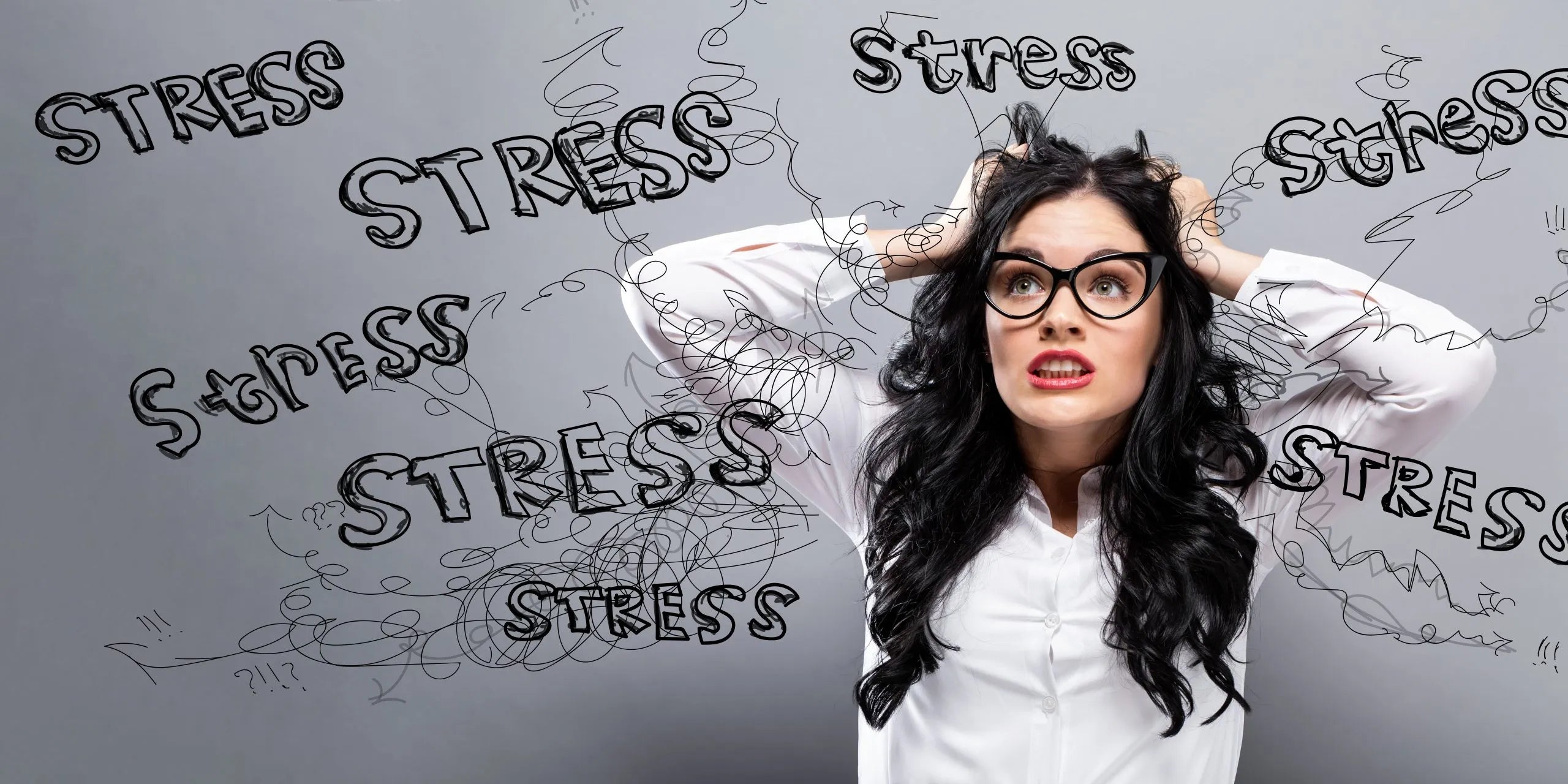You probably already know that living with high levels of stress isn't good for you. But learning how to lower stress in our busy, often chaotic world is quite another thing.
While a certain amount of stress is a normal part of life, constantly feeling overwhelmed can take a toll on both our mental health and physical well-being.
And with the potential for work demands, grueling commutes, debts and bills to pay, social media, and relationship stressors, it's easy to see how stress can pile up and play a negative role. That's where some stress-busting techniques come in handy.
The good news? You can do a lot to manage those feelings and regain control. Let's discuss how to lower stress effectively by making simple yet powerful lifestyle tweaks.
The Connection: Stress and Your Well-being
You know that feeling - your heart rate increases, your palms sweat, you can't seem to focus. That's your body's natural "fight-or-flight" response to stress kicking in.
Short bursts of this response can be helpful in a pinch, but when stress becomes chronic, it's a whole different story.

The Impact of Chronic Stress:
Consistently high stress levels don't just mess with your mood - they wreak havoc in your body, too. Some people experience digestive issues like heartburn or IBS when stressed.
For others, it's frequent headaches, muscle tension, or difficulty sleeping.
Chronic stress can also increase the risk of more serious health problems like heart disease, anxiety disorders, high blood pressure, and depression.
Learning how to lower stress can help minimize those risks.
How to Lower Stress Instantly
While long-term solutions are essential for tackling the root causes of your stress, what can you do right now when those overwhelming feelings hit?
Instant Stress Relief:
1. Just Breathe
Seriously, it works. Slow, deep breaths can quickly calm your nervous system. Try inhaling slowly for a count of four, holding for two, and exhaling slowly for four.
2. Quick Walk Break
When your mind's racing, a change of scenery can make all the difference. Even a short walk around the block can help clear your head, giving you a much-needed mental break.
3. Soak in Some Sun
Did you know that sunlight naturally boosts your mood? Getting outside on a sunny day can lift your spirits and help chase away those negative stressful feelings.
4. Give Yourself a Hand Massage
Treat yourself to a mini hand massage for quick relief. Our hands often hold a lot of tension.
5. Count it Out (Backwards)
When anxious thoughts are swirling, this trick can help break the cycle. Try slowly counting to 10, then back down again, to shift your focus and regain a sense of calm.
6. Rub Those Feet
Keep a golf or tennis ball under your desk for a DIY foot massage. This is a surprisingly effective way to relieve tension and feel more grounded. A few minutes of this can make a big difference.
7. Step Away From the Screen
Technology is great, but sometimes you just need a break. Giving yourself a few minutes of quiet alone time without your phone, can do wonders.

Making Lifestyle Changes: Building Long-Term Stress Resilience
While quick fixes are helpful, true mastery over stress involves understanding its triggers and developing healthy coping mechanisms. It's a journey.
Key Areas to Focus On:
8. Movement and Exercise
Exercise isn't just about heart health - it does wonders for your mind, too. Research suggests that regular aerobic activity helps improve mood and reduces stress and uncertainty.
Find one or more activities you enjoy - be it dancing, a brisk walk, swimming, or cycling - and make it part of your regular routine.
9. Nutrition and Mindful Eating
Ever notice how reaching for sugary snacks seems so much more appealing when you're stressed? This isn't a coincidence. A balanced diet packed with whole foods doesn't just fuel your body. It directly impacts your mental well-being.
Interestingly, studies show a connection between a poor diet, high in ultra-processed foods and added sugar, with increased stress levels. Consider replacing unhealthy habits with mindful eating and watch your stress melt away.
10. Create Healthy Boundaries with Technology
Our phones are supposed to make our lives easier, but the constant influx of notifications can leave you feeling even more stressed and drained. Studies link excessive smartphone use with higher stress and diminished mental health.
Creating tech-free zones or setting aside specific times to unplug can make a noticeable difference in managing your daily stress. Reducing your screen time is a great way to help reduce stress.
11. Prioritize Self-Care
Scheduling time for yourself might sound indulgent but consider it an essential investment in your well-being. Self-care is a powerful tool and improves your overall quality of life.
This could mean taking a long, relaxing bath, getting lost in a good book, practicing yoga, or pursuing hobbies that spark joy. Find ways to promote relaxation, to greatly reduce stress.

12. Journal for Emotional Release
Writing can be incredibly therapeutic. Putting your thoughts and emotions down on paper can help make them feel less overwhelming. Try to journal regularly as a stress relief tactic.
Research has also shown a positive link between regular journaling and overall quality of life. Recording negative thoughts is a great relaxation exercise.
13. The Power of Caffeine
Coffee lovers, listen up. While that morning cup of joe can kickstart your day, going overboard on caffeine can exacerbate feelings of stress and anxiety. It can also negatively impact your sleep.
Pay attention to how your body responds, and consider limiting your intake if you find yourself overly jittery or have trouble winding down. Aim to keep caffeine intake under 400mg daily.
14. Create More Social Connections
Having a support system to lean on during stressful situations can make a significant difference. Feelings of isolation make challenging moments seem even harder.
One study found a link between low levels of social support and heightened loneliness, depression symptoms, and feelings of stress among Latino young adults. Having a family member or friend to talk with can help relieve stress.
15. Learn to Say "No"
Feeling overwhelmed is a surefire stress trigger, so try not to take on too much at once. Setting boundaries and learning to politely decline requests can protect your mental bandwidth.
Similarly, putting things off until the last minute almost always creates more stress. Break down large tasks into smaller, more manageable steps, then tackle them strategically.
16. Find Your Inner Yogi
Looking for a mind body approach? Yoga may be your answer. This ancient practice does wonders to reduce stress, ease anxiety, and promote mental well-being. Yoga is a form of great exercise that helps reduce stress.
17. Mindfulness and Meditation
Just a few minutes of meditation each day can help cultivate calmness. Studies have found a strong link between even short meditation sessions and reduced stress and depression, and enhanced attention.
Explore guided imagery or mindfulness apps to help you learn how to relax.

18. The Power of Touch (Pets Included)
Never underestimate the stress-busting power of a good cuddle, whether with a loved one or a furry friend. Physical touch can lower stress hormones and boost happy hormones.
Plus, latest health research shows that pet owners, particularly dog owners, report higher life satisfaction, reduced loneliness, and more positive moods overall.
Pets can help reduce stress. And you can increase your benefits if you take your dog for walks.
19. Seek Help When Needed
Sometimes, despite our best efforts, the weight of stress can feel too heavy to manage alone.
Don't hesitate to reach out to a qualified clinician, counselor, or doctor for guidance and direct medical advice. They can provide you with positive self-talk techniques or other health care to help relieve stress.
20. Drink Green Tea
Green tea isn't just a trendy beverage. It naturally contains L-Theanine, an amino acid shown to have calming effects, and as such it can be part of a healthy diet.
21. Laugh Out Loud
You've probably heard that laughter is the best medicine, and guess what... it's true. It may sound silly, but a hearty chuckle triggers positive physical changes that help combat those stress responses. Put on a funny movie, watch a stand-up comedian, or invite a funny friend over for an evening.
22. Cool Down
This might sound odd, but a splash of cold water on your wrists and behind your earlobes can have an instant calming effect. Those areas contain major arteries, and the cold can help lower your overall body temperature slightly, easing tension.
23. Create a Personal "Zen Zone"
Create a space that’s completely free of stress where you can go to relax. Set up a comfortable chair, light some incense, and disappear there for a few minutes until the tension dissipates.

24. Enjoy a Chocolate
It's true what they say about chocolate! Research has shown that specifically dark chocolate may moderate stress hormone levels. Try adding a square or two of dark chocolate (defined as over 70% cocoa) into your diet to help lower stress at times when you feel overwhelmed. But don't overdo it... a small square savored will do the trick.
25. Spend Time in Nature
Have you noticed that spending even a short time outdoors in nature can completely shift your mood? Research confirms that being in natural environments is highly beneficial for mental well-being.
26. Play Your Instrument of Choice
It can be a great source of stress relief to take out your frustrations on the 88 keys on a piano, or a jazz rendition on your sax, or whatever your instrument of choice is.
Note that there’s a world of difference between playing music as a participant and merely passively listening to music. So at least some of the time, leave the headphones behind and engage as a player.
Conclusion
Learning how to lower stress is a continual process. It takes practice and finding the specific techniques that resonate with you.
Making small changes over time can lead to significant improvements in how you feel.
You've got this!
FAQs About How to Lower Stress
How to Stop Stressing?
The best way to stop stressing is to understand what triggers your stress in the first place. From there, implement the various methods in this post like meditation, removing unnecessary commitments, journaling, and cuddling your pet.
You will also find benefits from laughter and connecting with friends. But the first step is to remove your triggers as much as possible.
What are Quick Ways to Reduce Stress?
It is essential to find the best techniques for how to lower stress . You should find these techniques effective for quick stress relief.
- Spend some time with your pet.
- Unplug from social media and your phone for several hours per day.
- Engage in some type of daily exercise that you enjoy.
- Spend 15-20 minutes outside.
- Reduce or eliminate caffeine.

How Do I Control My Stress?
Control is about gaining mastery over our stress reactions and developing healthy coping mechanisms for dealing with challenges.
It begins with understanding your specific triggers - the situations, thoughts, or habits that consistently lead to feeling overwhelmed.
Here are some great tips for how to lower stress:
- Practice consistent relaxation techniques such as deep breathing.
- Incorporate mindfulness and meditation into daily routines.
- Seek social support from friends, family, or therapists.
- Set healthy boundaries.
- Engage in enjoyable hobbies.
- Seek professional guidance to understand the root causes and develop tailored coping mechanisms.
What are the 5 A's of Stress Management?
While there's no definitive "5 A's" widely recognized in the field of stress management, several strategies align with an "A" framework:
- Awareness - Recognize stress symptoms.
- Analysis - Identify stress triggers.
- Action - Take proactive steps to manage it.
- Adjustment - Modify response and adapt to situations.
- Acceptance - Embrace things outside your control.





Share:
Essential Fall Gardening Tips for a Lush Autumn Harvest
What is Functional Training? Keys to Real-Life Strength